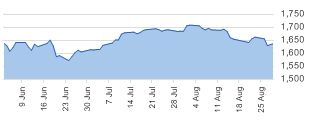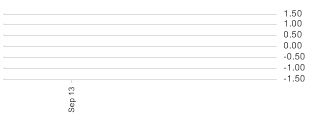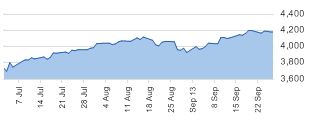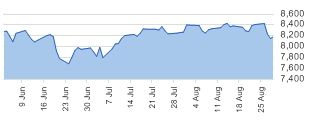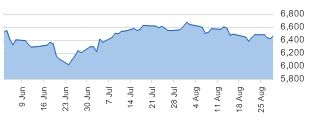
Malanda Dairy and Drinks site leader Chris Wright in the coolroom.
WOULD you pay $11 for a litre of milk?
The Chinese do, warns Deputy Prime Minister Barnaby Joyce, who argues $1 milk is not a fair price and shoppers should be paying more.
“I obviously believe that the proper price of milk is above a dollar,” Joyce told The Australian.
“They say they are not selling it below cost. What I say is that in many instances, it’s a loss-leader that is bringing people into the shop and they pick up the money in buying other products.
“The way we had to deal with that in the Department of Agriculture is by starting to open markets into China and we sell that same litre of milk to China for up to $11.”
And economists have pointed out that under the so-called “effects test” signed off by Prime Minister Malcolm Turnbull yesterday after an unexpected backflip, Coles and Woolworths would never have been able to drive the price down in the first place.
The effects test will prohibit big companies from acting in such a way that would have the effect of substantially reducing competition — whether they intended to or not.
Big business, including the Retail Council lobby group representing Coles and Woolworths, has previously warned that introducing an effects test could force them to raise prices and stifle innovation.
The Nationals, the small business lobby, consumer groups and the Australian Competition and Consumer Commission meanwhile have long lobbied for the change.
“The backflip by the government is simply bad policy and the consumer is the loser,” Retail Council chief executive Anna McPhee said yesterday.

Wesfarmers managing director Richard Goyder. Picture: David GeraghtySource:News Corp Australia
Writing in Business Spectator, commentator Stephen Bartholomeusz said the change would introduce “real uncertainty for businesses with substantial market power”.
“They would have to try to predict the potential impacts on competition and competitors of any significant decision they might take before they took it,” he wrote.
He described the “particular and fierce targeting” of the two big supermarket chains as an impediment to competition and innovation as “ironic, given that for something now approaching a decade the fierce competition between Coles and Woolworths has continually driven grocery price deflation and consumer benefit”.
Terry McCrann, writing in the Herald Sun, was similarly scathing. “Do you think Coles kicked off $1-a-litre milk just out of the goodness of its CEO and board of directors’ collective heart?” he wrote.
“No, it did it precisely to hurt its competitors — from Woolies to every milk bar and convenience store which would be collateral damage.
“History is littered with examples of companies doing things with the effect of reducing competition. Henry Ford and his model T built a near-monopoly for a while in cars. Look what Apple did to IBM, and Samsung and Apple jointly did to Nokia.”
Speaking at a business lunch yesterday, Wesfarmers boss Richard Goyder said an effects test is bad policy favoured by people who want to return Australia to the protectionism of the 1960s.
Mr Goyder said he felt disappointed and to a degree, disillusioned, by the Turnbull government’s surprise announcement on Wednesday, saying the effects test had always been about politics and not policy.
“I just think it’s bad policy, and I think the winners will be lawyers,” Mr Goyder said at the Australian Financial Review Business Summit on Wednesday.

Malcolm Turnbull has sparked a battle over grocery prices. Picture: Kym SmithSource:News Corp Australia
“The reason people want an effects test is they want less competition from Coles, they want less competition from Bunnings, they want less competition from Coca-Cola and Amazon and everyone else.
“They want the corner store and the protectionism of the 1960s to come back, and I think it’s totally misguided.”
Mr Goyder said an effects test would not deter Wesfarmers from trying to provide great outcomes for consumers in a way that was ethical and responsible, even though it might land the company in court.
“We’re not going to change the way we do things, which is to give good outcomes to our customers,” he said.
Mr Goyder said Wesfarmers would be doing the wrong thing by its shareholders if it decided to stop investing and stop reducing prices.
“If someone wants to take us to court in due course, then we’ll deal with that.”
Business Council of Australia president and Telstra chairman Catherine Livingstone said the council was extremely disappointed by the government’s decision and viewed an effects test as anti-competitive.
“The effects test will affect the whole economy. It’s not a big-business-only issue. In regional markets, it will be involving small business, so we are very disappointed,” she said.
“But we will work with the government through the drafting process to try to pre-empt any unintended consequences.” The Australian Newsagents’ Federation applauded the government for supporting small business by pushing ahead with the effects test.
Meanwhile, economist and commentator Judith Sloan described the move as an “appalling decision”. “When businesses will be pinged for introducing low-cost, innovative products because it hurts their dozy competitors, aka small business, we are surely stuffed,” she wrote.
“And take it from me, Barnaby, we love cheap milk.”
Milk22:40

Is milk really a super food?













